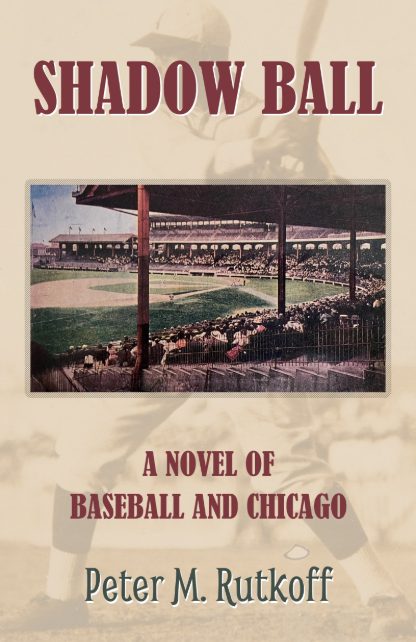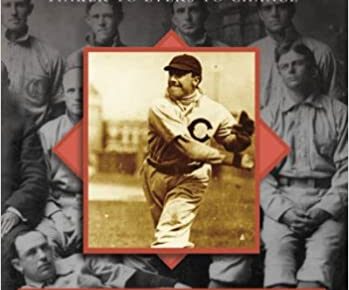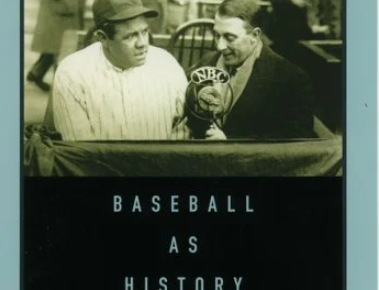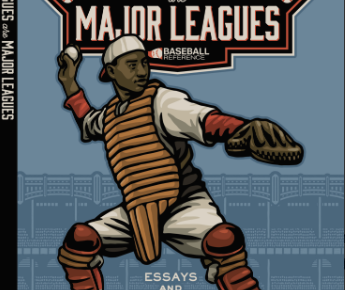Baseball as fiction is always, in my opinion, hard for an author to pull off. The main reason for this is that the author doesn’t let baseball tell the story. Instead, they feel the need to insert some sort of extraneous element that isn’t really necessary to the story. Shadow Ball: A Novel of Baseball and Chicago ran headfirst into that trap and kept on going until the non-baseball element overwhelmed the baseball part of the book and left me feeling very deflated and thinking about what could have been.
As far as the good stuff goes, man, did I love every second the book spent with Rube Foster. The author, Peter M. Rutkoff, is a historian, and he excels when he’s dealing with historical matters. The way he fleshes Foster out only helps to add to the idea of Foster that one has of him in their head. By the time Shadow Ball: A Novel of Baseball and Chicago finishes, the reader understands the brilliance of Foster, his resolute nature, as well as how his unwillingness to delegate and trust would lead to his mind failing him when he needed it most. Rutkoff’s portrayal of Foster is brilliant and true to the titan of the Negro Leagues.
While Rutkoff’s characterizations of Charles Comiskey, Pop Lloyd, and other historical figures are also fairly great, they pale next to the time spent with Foster. Comiskey suffers a little from the asshole paradox, as in, “Hey, this guy is an asshole, you’re doing a good job of portraying him as an asshole, but I don’t really want to spend much time with this asshole.” The other figures simply aren’t fleshed out enough. Their motives and intentions are hinted at, but there was so much opportunity to delve deeper into what makes those characters tick.
Instead, we spent a lot of time with Sam and Minnie and their kind of love story. Frankly, it’s not just the weakest part of the book, but it’s ham-fisted and badly written. Rutkoff didn’t make me care about either character, but he especially failed at making me care about their shared story. Sam at least served a purpose when he was operating in the seedy underbelly of Chicago’s baseball world. Minnie was along for the ride and offered no benefit to the true meat of Shadow Ball: A Novel of Baseball and Chicago, the baseball and Chicago.
The end of the novel left a bad taste in my mouth. Not because the idea of the ending was bad, but because in the most important moments of the book, Chicago, Foster, and the world of baseball are forced to play second fiddle to a silly love story that serves absolutely no purpose other than to get in the way of the best parts of the book. Shadow Ball: A Novel of Baseball and Chicago had so much potential, but like many a fictional baseball book, it was done in by the author’s unwillingness to trust that people would care enough about baseball on its own and not need a trope-filled juvenile love story.
Lead photo courtesy of Unknown – Summer Game Books




